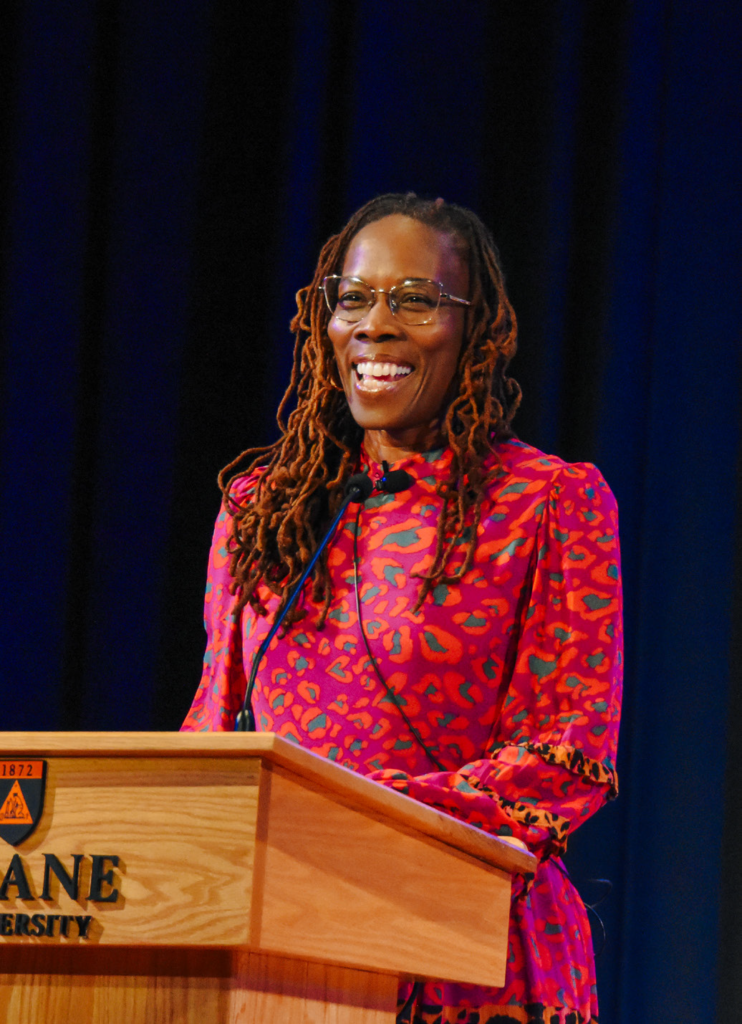
Dr. Thema Bryant begins her lecture with some laughs for the audience.
On Wednesday, April 9, Doane University held its 10th annual Robert L. Polk Lecture on Race & Social Justice with guest lecturer Dr. Thema Bryant in the Heckman Auditorium. The lecture series is named after Rev. Dr. Polk, who was the first Black graduate from Doane in 1952. As part of his legacy at Doane, Polk and Doane created a yearly lecture series to discuss race in America and how we can build racial healing and equity.
Bryant, a psychologist by trade and the guest lecturer for this year’s iteration of the Polk Lecture, spoke to a packed audience about the process of racial healing. Her lecture was largely focused on the cumulative trauma that oppressive systems and institutions have on individuals and how that systematic oppression leads to poor mental and physical health outcomes.
“Psych is often criticized by individuals for how it focuses solely on the individual. We need to create spaces where we can talk about the social injustices that lead to stress. The reality of racism is that we often don’t talk about it and when we don’t talk about it – and when things are silenced they can’t be addressed,” Bryant said in her lecture.
Bryant’s lecture focused on how American society is often tolerant of the issues of race and that it puts up with the problems of discrimination, but never addresses the elephant in the room, which is how to deal with racism.
Whether it’s racism, sexism, or any other ism, Bryant believes the way to deal with some of the systematic oppression can be found in healing: by giving space to those affected by these social inequalities and allowing constructive anger and conversation to guide them in finding substantive solutions.
“When people are having a hard time, we need to ask what happened to you. This shifts the conversation from victim blaming to understanding their stories. What happened to you and your communities, and what do you need for yourself and your communities to grow and thrive? That’s the question we need to be asking,” Bryant said.
Through the process of Liberation Psychology, Bryant allows her patients to be candid about how racism affects their individual lives and contributes to stress, trauma and mental health, which are conversations that are often ignored due to racism being perceived as only a large macro-problem.
As the lecture began to wind down, Rev. Dr. Polk made an appearance and thanked Bryant for continuing the discussion about race and racism that is needed in our current day and age and expressed gratitude that his time at Doane has led to a lectureship that aims to educate attendees about how to build a better, kinder and more integrated future.

